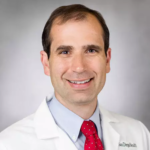Seth K. Bechis, MD, presented “Lasers in Stone Surgery: Principles and Tips/Tricks for Lasers in URS and PCNL” during the 43rd Annual Ralph E. Hopkins Urology Seminar on January 31, 2024, in Jackson Hole, Wyoming.
This content is available free to the GRU Community. Login or create an account to view it.
How to cite: Bechis, Seth K. “Lasers in Stone Surgery: Principles and Tips/Tricks for Lasers in URS and PCNL.” January 31, 2024. Accessed Jan 2026. https://grandroundsinurology.com/lasers-in-stone-surgery-principles-and-tips-tricks-for-lasers-in-urs-and-pcnl/
Lasers in Stone Surgery: Principles and Tips/Tricks for Lasers in URS and PCNL – Summary#
Seth K. Bechis, MD, discusses applications, principles, and tips for using lasers in ureteroscopy and percutaneous nephrolithotomy. He begins by providing an overview of currently available laser technology, including short vs. long pulse and pulse modulation lasers, and their underlying mechanics.
Dr. Bechis then delves into how to match the appropriate laser with the desired treatment result based on the pros and cons of each device. Dr. Bechis provides real-world examples and use cases for laser devices, including:
- Low Power Holmium Lasers
- High Power Holmium Lasers
- Pulse Modulation Lasers
- Thulium Fiber Lasers
- Thulium:YAG Lasers
Dr. Bechis concludes by summarizing laser-based approaches to stone treatment, explaining that important considerations include the desired treatment result and the laser’s pulse energy, frequency, and pulse width/modulation. He notes the importance of accounting for unique patient factors, such as anatomy and comorbidities, in addition to the technology’s capabilities when selecting laser treatment.
About The 43rd Annual Ralph E. Hopkins Urology Seminar:#
The Ralph E. Hopkins Urology Seminar is a multi-day meeting focused on training urologists in the latest in assessing, diagnosing, and treating urologic conditions in the clinical setting. Updates are provided on urologic cancers, stone disease, urologic reconstruction, female urology, infertility, sexual function, emerging surgical techniques, and general urology. The 43rd iteration of the meeting took place from January 31st to February 2nd, 2024, in Jackson Hole, Wyoming.
For further educational activities from this conference, visit our collection page.
ABOUT THE AUTHOR
Seth K. Bechis, MD, MS, is an Associate Professor of Urology at the University of California, San Diego. Dr. Bechis specializes in all procedures of the prostate, including minimally invasive procedures such as Rezum water vapor therapy and UroLift, as well as robotic surgery and GreenLight Laser photoselective vaporization of the prostate. His current research focuses on improving surgical techniques and clinical outcomes in stone disease, as well as tools for stone diagnosis and opiate-sparing pathways for managing pain.
Dr. Bechis earned his Master’s of Science in Biomedical Sciences and his medical degree from the University of California, San Francisco. He completed his residency at Harvard University in Boston, Massachusetts. Dr. Bechis then completed a fellowship in Laparoscopy/Robotics and Endourology at the University of California, San Francisco.
Dr. Bechis is a member of several professional medical organizations, including the American Urological Association (AUA), the Endourological Society, and the Western Section of the AUA. He has won numerous awards and honors over the years, including the Whitehill Award for Excellence in Clinical Teaching in 2019, Plenary Address for Best Abstract from the American Urological Association in 2015, and first place in the 2014 Max K. Willscher Resident Research Award Competition. Dr. Bechis has been invited to speak nationally and internationally at conferences on topics including benign prostatic hyperplasia and stone disease. His research has been featured in peer-reviewed medical journals, including Journal of Urology, Journal of Endourology, and World Journal of Urology. Additionally, Dr. Bechis was editor of First Aid Q&A for the USMLE Step 1, Second Edition, and has authored chapters for university handbooks.

